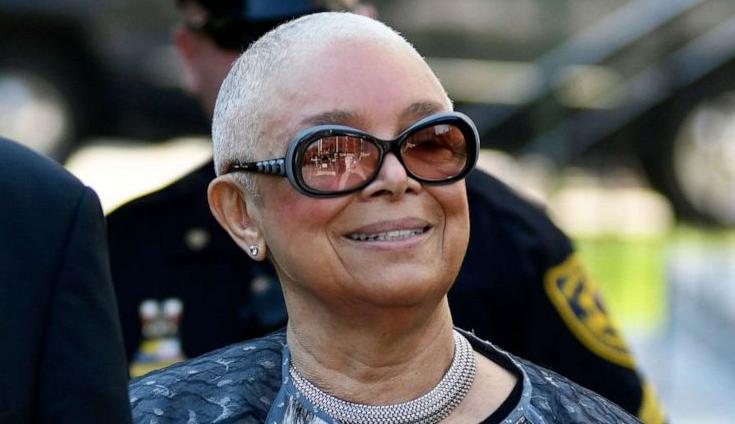
“We may encounter many defeats but we must not be defeated. That in fact it may be necessary to encounter defeat so we can know who the hell we are. What can we overcome. What makes us stumble and fall and somehow miraculously rise and go on.”
These words greet viewers at the door of PBS’ latest American Masters’ offering “Maya Angelou: And Still I Rise,” a message from the guest of honor, herself, proven through her own remarkable story of struggle and resilience.
You may think you know Maya Angelou, perhaps having read her six autobiographical books (I Know Why the Caged Bird Sings, Gather Together in My Name, Singin’ and Swingin’ and Gettin’ Merry Like Christmas, The Heart of a Woman, All God’s Children Need Traveling Shoes, and A Song Flung Up to Heaven), but filmmakers Bob Hercules and Rita Coburn Whack open doors to rarely explored areas of her life.
Angelou’s close friendships with James Baldwin and Malcolm X are given ample attention, as is the devotion she felt toward her only child, Guy Johnson, who fell victim at times to his mother’s dogged pursuit of her career. One poignant moment in the film is Angelou’s recollection of Baldwin coming to her rescue amid a depression triggered by her son’s horrific car accident in Ghana.
Perhaps the most ardent of Maya Angelou fans have not seen footage of her sternly scolding a young girl who dared to call her by her first name; or witnessed longtime friend Cicely Tyson burst into uncontrollable laughter describing one of Angelou’s husbands, or was aware that Pearl Bailey single-handedly denied Angelou the opportunity to play her understudy in Broadway’s “Hello Dolly.”
“For my mother, it would’ve meant continuously living in New York without leaving me for at least a year. And it was regular money,” Johnson recalls in the film. “The director and the producer both loved her. But Pearl Bailey came back and said, ‘Oh no, I ain’t gonna have this big ol’ ugly girl be my understudy.’ There are very few times in my life where I remember my mother crying, because this meant she had to go back out on the road and find other work.”
The documentary, of course, covers the moments that it must: Angelou and her brother Bailey, as toddlers, being sent alone on a train from Los Angeles to Stamps, Arkansas to live with their grandparents, because their own mother and father saw them as an inconvenience; returning to their mother in St. Louis, where Angelou was raped by her mother’s boyfriend at age 7; how the beating death of her rapist in the wake of Angelou revealing his name caused her to stop speaking for the next five years, believing her voice had caused his murder.
Viewers experience her early years as a Calypso dancer and singer in San Francisco, her travel overseas with “Porgy and Bess,” writing her first autobiography, I Know Why the Caged Bird Sings, and her literary accomplishments and countless accolades that followed. Her work as coordinator for the Southern Christian Leadership Conference and as a journalist in Egypt and Ghana are given light, as is her poem On The Pulse of Morning, for President Clinton’s 1992 Inauguration.
Work on “And Still I Rise” began five years ago. Ailing from COPD, Angelou sat for each interview session as long as possible until having to rest her lungs.
“I’ve made a lot of films over my years, and I’ve never interviewed somebody who so deeply went into that moment, whatever she was talking about, almost psychically, physically, spiritually into that moment as deep as that,” Hercules told the Television Critics Association in January. “She was there in a way I’ve never seen anybody get to.”
Angelou’s presence and spotless truth in these sessions turned out to be her parting gift.
Her quote chosen to open the film carries another dimension of relevance in the current political climate; the words, the documentary and her entire body of work a living, breathing testimony in the vein of Raoul Peck’s Oscar-nominated Baldwin documentary “I Am Not Your Negro.” Both represent the necessity of art as a sidearm against injustice, and the written word among its most penetrable bullets.
We Publish News 24/7. Don’t Miss A Story. Click HERE to SUBSCRIBE to Our Newsletter Now!





